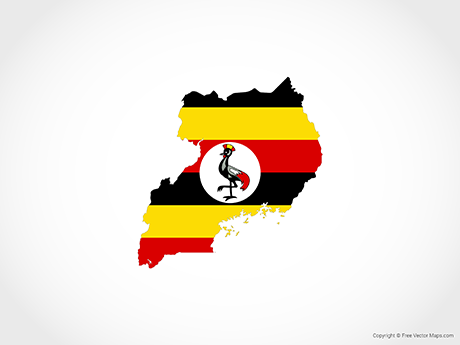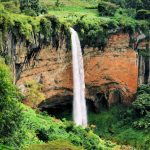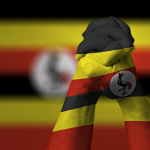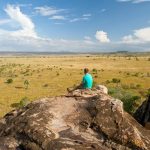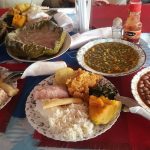Uganda gained its independence from Britain on 9 October 1962. The official languages are English and Swahili, although multiple other languages are spoken in the country. The Ugandans were hunter-gatherers until 1,700 to 2,300 years ago. Bantu speaking populations, who were probably from central Africa, migrated to the southern parts of the country. These groups brought and developed iron working skills and new ideas of social and political organization. The Empire of Kitara covered most of the great lakes areas, from Lake Albert, Lake Tanganyika, Lake Victoria, to Lake Kyoga.
Its leadership headquarters were mainly in what became Ankole, believed to have been run by the Bachwezi dynasty in the fourteenth and fifteenth centuries, who may have followed a semi-legendary dynasty known as the Batembuzi. Bunyoro-Kitara is claimed as the antecedent of later kingdoms; Buganda, Toro, Ankole, and Busoga. The Nilotic Luo invasion is believed to have led to the collapse of the Chwezi Empire.
The twins Rukidi Mpuuga and Kato Kintu are believed to be the first Kings of Bunyoro and Buganda after the Chwezi Empire collapsed, creating the Babiito and Bambejja Dynasty. Nilotic people including Luo and Ateker entered the area from north, probably beginning about A.D 120. They were cattle herders and subsistence farmers who settled mainly in the northern and eastern parts of the country.
Some Luo invaded the area of Bunyoro and assimilated with the Bantu there, establishing the Babiito dynasty of the current Omukama (Ruler) of Bunyoro-Kitara. Luo migration continued until the 16th century, with some Luo settling amid Bantu people in Eastern Uganda, with others proceeding to the western shores of Lake Victoria in Kenya and Tanzania. The Ateker (Karamojong and Iteso) settled in the northeastern and eastern parts of the country, and some fused with the Luo in the area north of Lake Kyoga.

